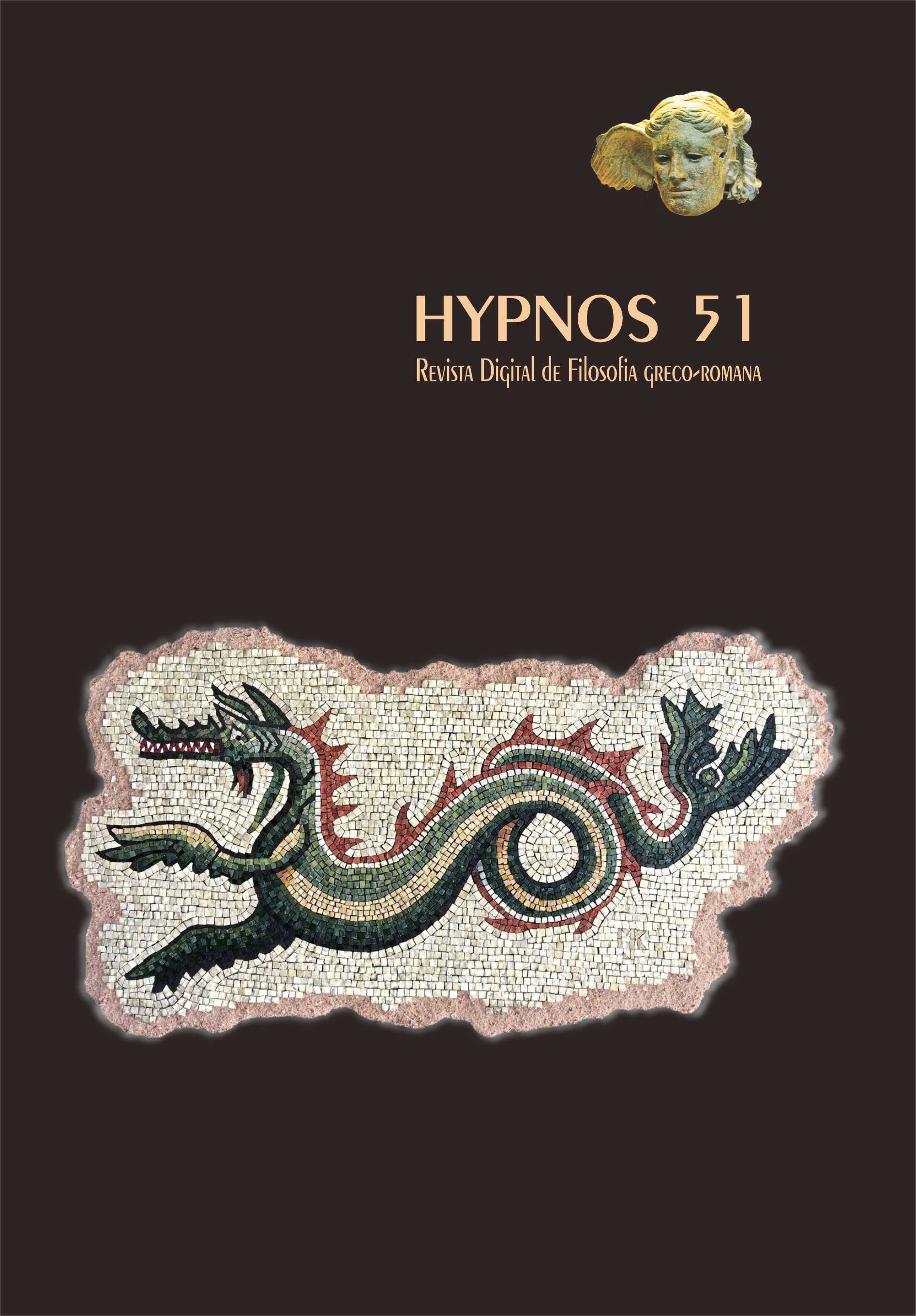Lucretius’ pura voluptas as enjoyment of sexual desire (De rerum natura 4. 1030-1287)
Keywords:
Love, Venus, desire, sexual pleasureAbstract
This article focuses on analyzing passage 4.1030-1287 of Lucretius’s poem De rerum natura, in which the poet-philosopher discusses love and sexual pleasure. In this sense, we present, initially, some considerations for understanding the place of pura voluptas in the classification of natural and non-necessary desires according to Epicurus, passing on to expose what Lucretius means by calling vulgivagaque Venus and that term’s relationship to the simulacra of love that torment lovers. Our objective is also to analyze whether there is, among the manifestations of Venus, the possibility of a more measured love that would be a type of conjugal or marital love.
References
BAILEY, C. De Rerum Natura. Libri Sex. London: Oxford University Press, 1947.
LUCRÉCIO. Sobre a Natureza das Coisas. Ed. Bilíngue. Trad. de Rodrigo Tadeu Gonçalves. Belo Horizonte: Ed. Autêntica, 2021.
LUCRÉCE. De la Nature. Texte traduit par Alfred Ernout. Paris: PUF, 1920.
ASMIS, Elizabeth. Lucretius’ Venus and Stoic Zeus. In: GALE, Monica R. Lucretius (Oxford Reading in Classical Studies). New York: Oxford University Press, 2007.
BROW, Robert D. Lucretius on love and sex: a commentary on De Rerum Natura IV, 1030-1287 with Prolegomena, text and translation. New York: Columbia University, 1987.
CONCHE, Marcel. Lucrèce et l’expérience. Paris: Presses Universitaires de France, 2015.
CONTE, G. B. Latin Literature: a history. Translated by Joseph B. Solodow. London: The Johns Hopkins University Press, 1994.
EPICURO. Cartas & Máximas Principais. Tradução, apresentação e notas de Maria Cecília Gomes dos Reis; introdução de Tim O’Keef. 1ed. São Paulo: Penguin Companhia das Letras, 2020.
EPICURO. Sentenças Vaticanas. Texto, tradução e comentários de João Quartim de Moraes. São Paulo: Edições Loyola, 2014.
GLARE, P. G. W. Oxford Latin Dictionary. Oxford: Oxford University Press, 2012.
JEROME, Chronicle. Disponível em: https://www.tertullian.org/fathers/jerome_chronicle_06_latin_part2.htm
LAÉRTIOS, D. Vidas e doutrinas dos filósofos ilustres. Tradução, introdução e notas Mário da Gama. 2.ed. Brasília: Editora UNB, 2008.
NUSSBAUM, M. C. The Therapy of Desire: theory and practice in hellenistic ethics. New Jersey: Princeton University Press, 1994.
ONFRAY, Michel. Contra-história da filosofia V. 1: as sabedorias antigas. Tradução de Mônica Stahel. São Paulo: Martins Fontes, 2008.
PLATÃO. Diálogos (Protágoras – Górgias – O Banquete – Fédão). Vls. III – IV. Tradução de Carlos Alberto Nunes. Pará: Universidade Federal do Pará, 1980.
SEDLEY, D. Epicureanism in the Roman Republic. In: The Cambridge Companion to Epicurenism. Edited by James Warren. New York: Cambridge University Press: 2009.
SPINELLI, M. Lucrécio e Virgílio, as várias faces de Vênus: musa, genitora e vulgívaga. Hypnos, n. 23, 2009, p. 258-277. Disponível em: https://hypnos.org.br/index.php/hypnos/article/view/40.
SPONVILLE, A. C. La Miel y la Absenta. Traducción de Jordi Terré. Barcelona: Ed. Paidos, 2009.
SPONVILLE, A. C. Lucrécio e as imagens do invisível. In Uma educação filosófica. Tradução de Eduardo Brandão. São Paulo: Martins Fontes: 2001.
Downloads
Published
Issue
Section
License
Copyright (c) 2023 Hypnos Journal

This work is licensed under a Creative Commons Attribution-NonCommercial-ShareAlike 4.0 International License.
The contents of the manuscript have been tacitly or explicitly approved by the responsible authorities where the research was carried out.
Upon acceptation of the manuscript, the author agrees to allow its publication by Hypnos, declining pecuniary gains due from copyright. If the manuscript is published later in other media, the author agrees to always give credits of its first publication in Hypnos.
If the submitted document includes figures, tables, or large sections of text previously published, the author declares himself responsible for having obtained permission of the original copyright owners of these items for both the online and printed publication of this journal. Credits for copyrighted material must be properly attributed in the manuscript.


 A revista
A revista 